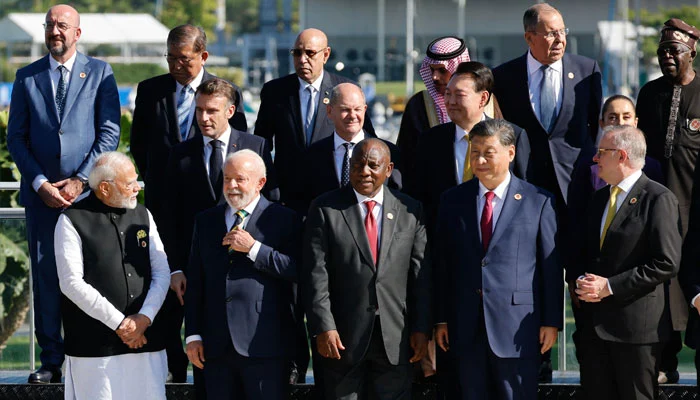ISLAMABAD: The Islamabad High Court (IHC) on Monday issued a notice to the Federal Investigation Agency (FIA), seeking a response on Pakistan Tehreek-e-Insaf (PTI) Chairman Imran Khan’s bail application in the cipher case.
This development came during the hearing of Khan’s bail petition, challenging the decision of the special court — established under the Official Secrets Act — which rejected the post-arrest bail petitions filed by the PTI chairman and his party’s Vice Chairman, Shah Mahmood Qureshi, in the cipher case.
The PTI chairman filed the plea on Saturday, and the IHC scheduled it for today’s hearing.
IHC Chief Justice Aamer Farooq issued notices in response to the plea filed by lawyer Salman Safdar on behalf of the PTI chief.
The PTI chief’s legal team repeatedly urged for an early hearing of the case, following which the IHC chief justice emphasised that there is a proper procedure in place, and the case will be decided accordingly.
The FIA has been directed to submit its response to the PTI chief’s petition.
Khan and Qureshi are on judicial remand in the cipher case till September 26.
Last month, the FIA booked PTI chief and his party’s vice chairman under the Official Secrets Act for allegedly misplacing and misusing the classified document for vested political interests.
Subsequently, both leaders were arrested in connection with the investigation into the case and a special court was established under the Official Secrets Act to try the accused.
What is ciphergate?
The controversy first emerged on March 27, 2022, when Khan — just days before his ouster in April 2022 — brandished a letter, claiming that it was a cipher from a foreign nation, which mentioned that his government should be removed from power.
He did not reveal the contents of the letter nor mention the name of the nation that had sent it. But a few days later, he named the United States and said that Assistant Secretary of State for South and Central Asia Affairs Donald Lu had sought his removal.
The cipher was about former Pakistan ambassador to the US Asad Majeed’s meeting with Lu.
The former prime minister, claiming that he was reading contents from the cipher, said that “all will be forgiven for Pakistan if Imran Khan is removed from power”.
Then on March 31, the National Security Committee (NSC) took up the matter and decided to issue a “strong demarche” to the country for its “blatant interference in the internal affairs of Pakistan”.
Later, after his removal, Khan’s successor Shehbaz Sharif convened another meeting of the NSC, which came to the conclusion that it had found no evidence of a foreign conspiracy in the cipher.
The cipher case against the former premier became serious after his principal secretary Azam Khan stated before a magistrate as well as the Federal Investigation Agency (FIA) that the former PM had used the US cipher for his “political gains” and to avert a vote of no-confidence against him.
The former bureaucrat, in his confession, said when he provided the ex-premier with the cipher, he was “euphoric” and termed the language a “US blunder”. The former prime minister, according to Azam, then said that the cable could be used for “creating a narrative against establishment and opposition”.
Azam said the US cipher was used in political gatherings by the PTI chairman, despite his advice to avoid such acts. He mentioned that the former prime minister also told him that the cipher could be used to divert the public’s attention towards “foreign involvement” in the opposition’s no-confidence motion.



